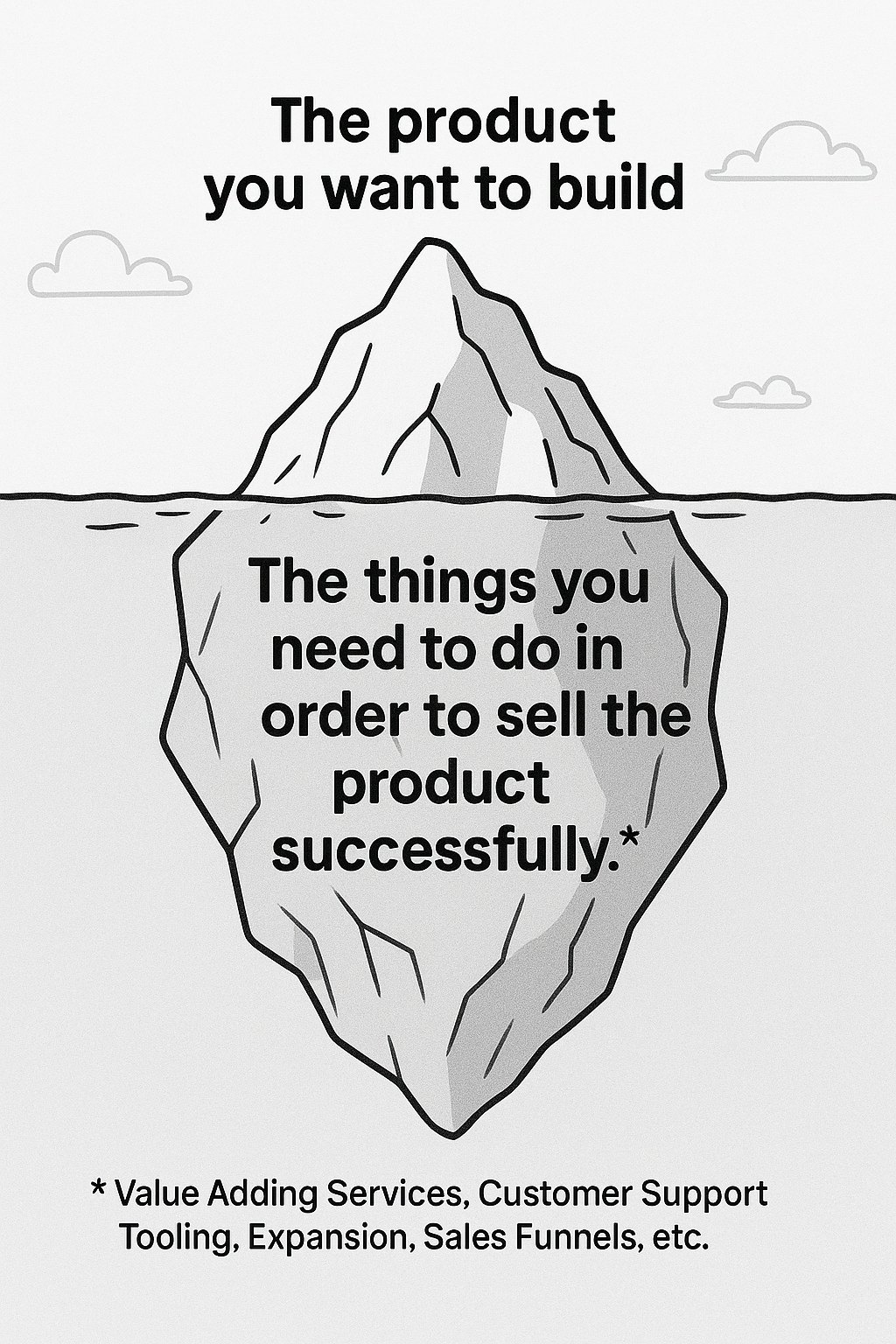Don’t build that new product!
The best player wins. You can’t sacrifice anything, but you do have to make trade-offs everywhere. This article aims to be a reminder of how important it is to do just one thing and try to be the best at it.
Your job as a founder is to do the right thing at the right time. With limited resources, you have to focus on doing the few things you actually can do, better than your competitors. Starting from positioning and messaging, to the way you do your sales, the marketing channel you pick, the target group you address, the features you’re building, and customer support (+tooling). Nothing is worse than widespread, thin, and mediocre execution. “We’ve tried it all” - Nope, you’ve actually tried nothing for real, is the truth.
How to win:
- Be the best at one thing (focus)
- Prevent churn with outstanding customer experience value-adding services (focus)
- Do the right thing (singular) at the right time, depending on your resources and market dynamics (focus)
As your company matures, this doesn’t get easier. You now have distribution power, and the temptation to cross-sell/upsell other products is huge (and the list of companies asking you to do that with their product is long, too). But can that really work? Now, the messaging on your website dilutes, while another player's whole messaging, end-to-end, from ads to thanks-for-your-purchase e-mail, speaks one converting, retaining, and brand-positioning language. Sure you can grab some market-share, but you'll dilute your positioning and efforts across the board. Stay in your lane, you’re not going to beat them.

Suddenly, the market structure changes, and you’re afraid of being replaced or substituted. Suddenly, there is someone between you and your customer and it gives you anxiety. Pivoting your company at the wrong time will kill it, though. Pivot too early and your core, which made you successful in the first place slides into mediocrity and your weaker competitor will catch up. The situation is tricky, so you have to ask the right questions:
- If your customer were to stop using you today, how big would their switching costs be?
- What do your customers want? Talk to them and discuss market dynamics with them.
- How big is the overlap between yours and your intermediary's target group?
- How big are the non-overlapping markets?
- Can you become a supplier (the best supplier) to that player?
- Where does the market actually stand?
- How much more will it grow?
- How much more will it innovate, create standards and change direction?
- Could you wait 1-2 years to build a competitive product that will keep on growing your distribution?
Whatever that product is you want to build, ask what it takes to become the best at that new thing and if you actually have the resources or if it will run you into mediocrity.
Remind yourself: The website that sells just one product sells better than the website that sells two. The founder who pitches two stories will have a harder time raising money than the one who sells multiple ones. This almost goes for everything in your company.
Can you build this? Yes. Can you do enough to win this? Probably not. If you feel you’re forced to adjust, then there are multiple ways to handle this particular situation:
- Build on the side if you can clearly afford this and have a venture plan for winning here down the line.
- Pivot softly (long-term perspective): start saying “no” to customers you can’t make happy anymore, start deprecating features that are not used enough, the moment they demand attention - shift resources. If you can afford it, buy a yet smaller player that plays into your lane and gives you a head start. Run hybrid, maybe sell your old code-bases & distribution. Pivoting is an investment. You’re sacrificing short-term success for long-term survival. If you're venture capital funded, talk to your investors. Good ones will let you shift.
- Pivot aggressively (fight or flight: fight): Full stop. Change what you’re doing if it’s not working well enough (no PMF)—typically an early-stage move.
- Sell the company (Fight or flight: flight). This can be seen and done in two ways:
- Accelerating: Is there a company with 100x more distribution power and resources? So you could grow, pivot, and have wings? Great. Are you still passionate enough? You go, girl. It doesn’t have to be a big exit. Ask for a strategic investment and wings.
- Giving up: And there is no shame about that. An entrepreneur’s biggest investment is their time, and it can also be the biggest gift to the world because your creativity, your passion and your time will cause the change it needs to make this world a better place. You are the progress. Move on if you have to.
The emotional rollercoaster is tough. And navigating this is exactly what differentiates a seasoned entrepreneur from a first-time entrepreneur. Developing the gut feeling to listen to the right voices as everyone shares their anxieties, experiences, and opinions with you.
Stay cool-headed, go touch some grass. Remember: Your job as a founder is to do the right thing at the right time.